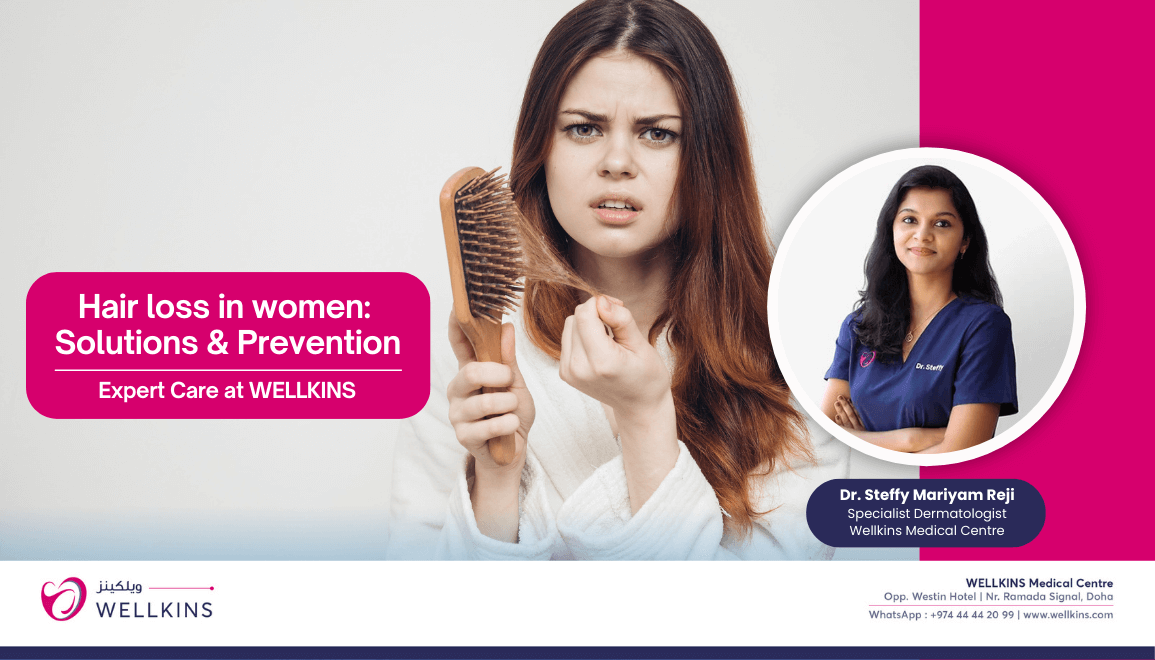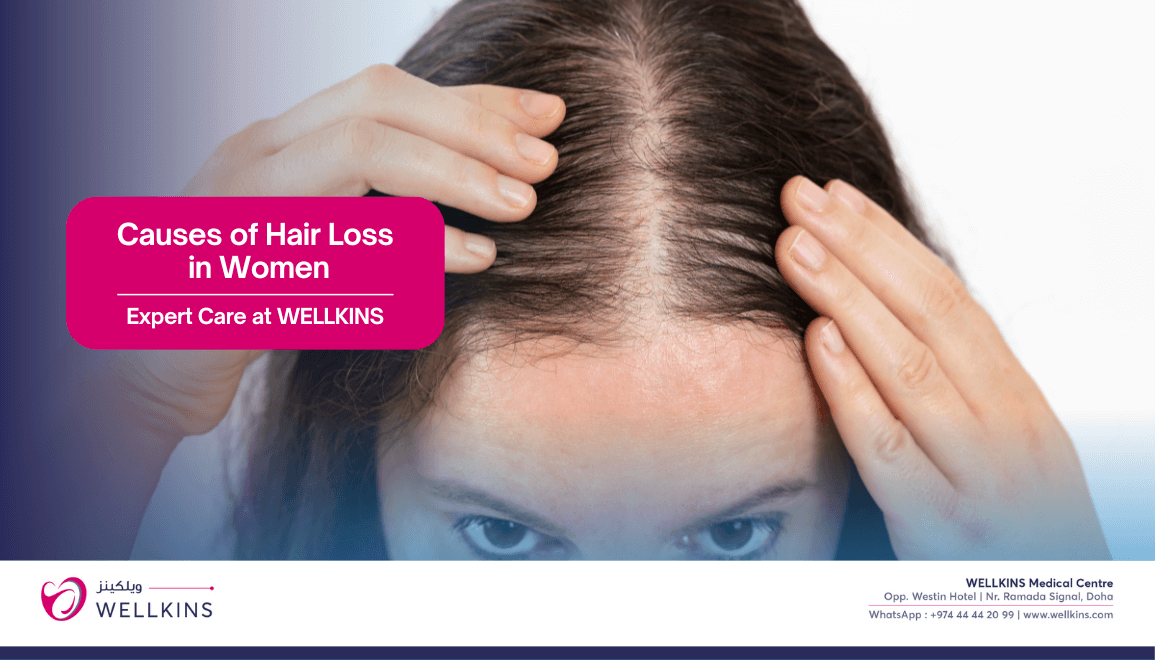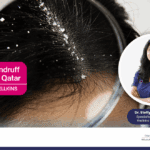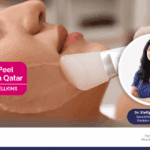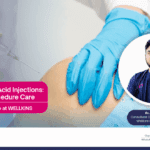Author: Dr. Steffy Mariyam Reji, Specialist Dermatologist Wellkins Medical Centre
Hair loss, a condition affecting millions worldwide, can be a particularly distressing and emotionally challenging experience for women, often significantly impacting their self esteem and overall confidence. While it is a natural part of the hair cycle to lose between 50 and 100 strands a day, a noticeable increase in shedding or significant hair thinning can be a cause for concern. It’s important to know that many types of hair loss are treatable, and with the right approach and professional guidance, it is entirely possible to manage the condition, promote healthy hair growth and restore the hair’s natural vitality.
Every woman knows that hair loss can turn your confidence and daily life upside down. The sight of thinning hair, the need to adjust hairstyles, and the fear of long-term damage are instantly worrying. With rising stress levels, hormonal imbalances, and lifestyle factors among women in Qatar, it’s crucial to recognize the early signs and address the silent progression of hair loss before it takes a toll on overall well-being.
Understanding the Causes of Hair Loss in Women
Hair loss in women is a multifaceted issue that can be triggered by a wide range of factors, from genetics and hormonal changes to diet and various lifestyle habits. Pinpointing the exact root cause is the first and most crucial step toward developing an effective treatment plan. Common causes include:
Hormonal Imbalances: Hormonal fluctuations are a significant contributor to hair loss in women. This is frequently observed during major life events such as pregnancy, after childbirth, during menopause, or as a result of endocrine disorders like Polycystic Ovary Syndrome (PCOS) and thyroid issues (both hyperthyroidism and hypothyroidism). The imbalance of androgens (male hormones) can lead to a condition known as androgenetic alopecia.
Genetic Predisposition: Female-pattern hair loss (androgenetic alopecia) is the most common cause of hair loss and is hereditary. It typically presents as a gradual thinning of the hair on the top of the scalp, often starting with a widening of the part. This condition is progressive and can begin at any age after puberty.
Nutritional Deficiencies: A lack of essential vitamins and minerals is a major but often overlooked cause. Deficiencies in iron, zinc, vitamin D, and B vitamins (especially biotin and B12) can directly contribute to hair thinning and shedding, as these nutrients are vital for the health of hair follicles. A diet lacking in protein can also be a factor, as hair is primarily made of a protein called keratin.
Physical and Emotional Stress: Events that place significant physical or emotional stress on the body such as major surgery, severe illness (like COVID-19), extreme dieting, or a major emotional trauma can trigger a temporary type of hair loss called telogen effluvium. In this condition, a large number of hairs prematurely enter the resting phase and then fall out a few months later.
Medical Conditions and Medications: Certain medical conditions, including autoimmune disorders like alopecia areata (which causes patchy hair loss) and lupus, can cause significant hair loss. Additionally, certain medications for conditions like high blood pressure, depression, and arthritis can have hair loss as a side effect.
Harsh Hair Treatments and Styling: Over-processing the hair with chemical treatments like dyes, bleaches and perms, or the frequent use of heat-styling tools like flat irons and curling irons, can damage the hair shaft and weaken the follicles. Tightly pulled hairstyles, such as tight ponytails, braids, or buns, can lead to a condition called traction alopecia, where the constant pulling damages the follicles over time.
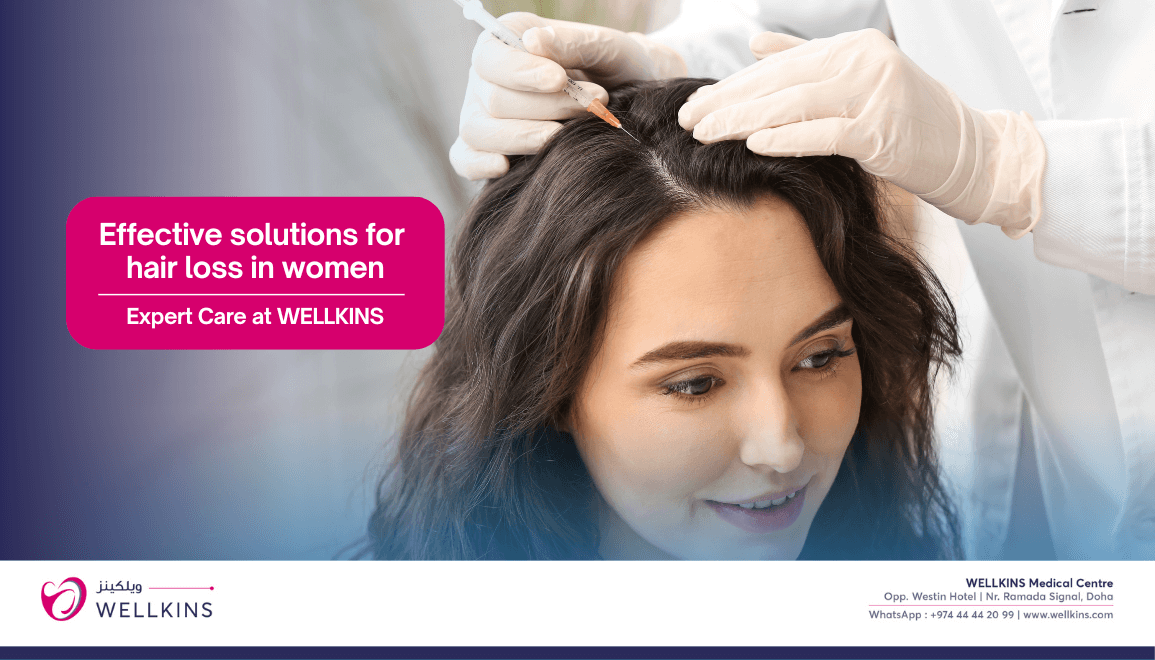
Effective Solutions & Treatment Options
Once the underlying cause of hair loss is identified through a proper diagnosis, a personalized treatment plan can be developed. The solutions for hair loss can range from simple lifestyle adjustments to more advanced medical and professional interventions.
Lifestyle & Diet: A balanced diet rich in iron, protein, and vitamins is fundamental for hair health. Ensure your daily meals include lean meats, leafy greens, nuts, seeds, and fruits. Managing stress through activities like yoga, meditation and regular exercise can significantly help reduce hair shedding, especially in cases of telogen effluvium. Prioritizing 7-9 hours of quality sleep per night is also crucial for the body’s regenerative processes, including hair growth.
Medical Treatments: Depending on the diagnosis, a doctor or dermatologist may recommend topical medications like minoxidil, which is the only FDA-approved medication for female-pattern hair loss and works by stimulating hair follicles. In some cases, hormone-regulating medications or supplements to correct specific nutritional deficiencies may be prescribed. For autoimmune-related hair loss, a doctor may recommend corticosteroids or other immune modulating drugs.
Professional Procedures: Platelet-Rich Plasma (PRP) therapy is an advanced and increasingly popular treatment. It involves drawing a small amount of the patient’s blood, processing it to concentrate the platelets, and then injecting the plasma into the scalp. The growth factors in the plasma help to stimulate hair follicles and promote new hair growth. Low-level laser therapy (LLLT), also known as red light therapy, is another option that uses a specific wavelength of light to stimulate hair follicles and increase circulation to the scalp.
Hair Transplant Surgery: For more advanced cases of permanent hair loss, hair transplant surgery may be a viable option. This procedure involves transplanting hair follicles from a donor area (usually the back of the scalp) to the thinning areas.
Prevention Tips for Women’s Hair Loss
Prevention is often the most effective strategy against hair loss. By adopting a proactive approach to hair care and overall health, you can significantly reduce your risk of experiencing hair thinning and shedding.
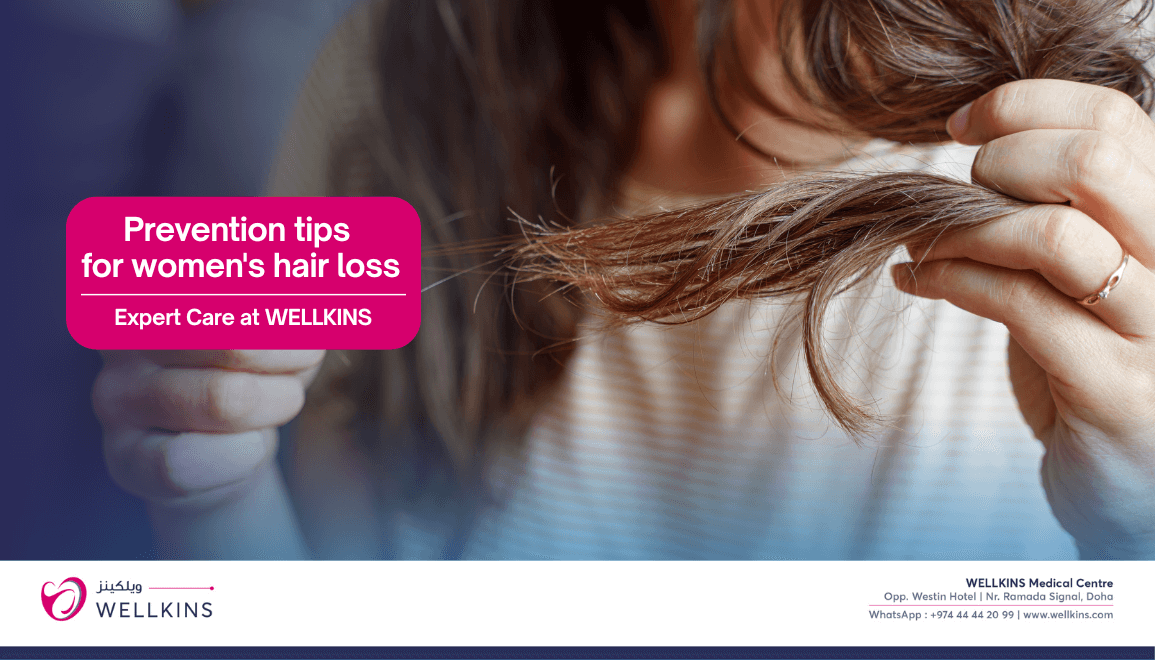
Gentle Hair Care: Be gentle with your hair, especially when it is wet and at its most vulnerable. Avoid aggressive brushing and use a wide-tooth comb to detangle. Limit the use of harsh heat-styling tools. Choose hair products that are gentle and free of harsh chemicals like sulfates.
Balanced Diet: Ensure your diet is rich in foods that support hair health. This includes iron-rich foods (leafy greens, lean meats, lentils), protein (eggs, chicken, fish, nuts), and omega-3 fatty acids (salmon, walnuts, avocados). Hydration is also key; drink plenty of water throughout the day.
Stress Management: Chronic stress elevates cortisol levels, which can negatively impact hair growth. Incorporate stress reducing activities into your daily routine, such as mindfulness, deep breathing exercises, or hobbies.
Regular Health Check-ups: Regular health check-ups can help identify and address any underlying hormonal or nutritional issues before they lead to significant hair loss. Your doctor can perform blood tests to check for thyroid issues, iron deficiency, or other conditions that could be affecting your hair.
Avoid Tight Hairstyles: Give your hair a break from tight ponytails, braids, and buns that pull on the hair follicles and can lead to traction alopecia.
Hair loss can be a source of significant anxiety and frustration, we believe no one should have to navigate this challenge on their own. Seeking professional guidance is a crucial step toward understanding your condition, determining the exact cause, and finding a path to recovery.
At Wellkins Medical Centre, we have a steadfast commitment to providing a complete and compassionate care for our patients. We focus on delivering a thorough and empathetic consultation to determine the exact cause of your hair loss. We will then work with you to create a personalized treatment plan that may include a combination of lifestyle changes, nutritional guidance, and advanced medical solutions. Our ultimate goal is to support you with the tools and knowledge you need to take control of your condition, restore your hair’s health and regain your confidence.
To book an appointment at Wellkins Medical Centre: https://wellkins.com/visit


